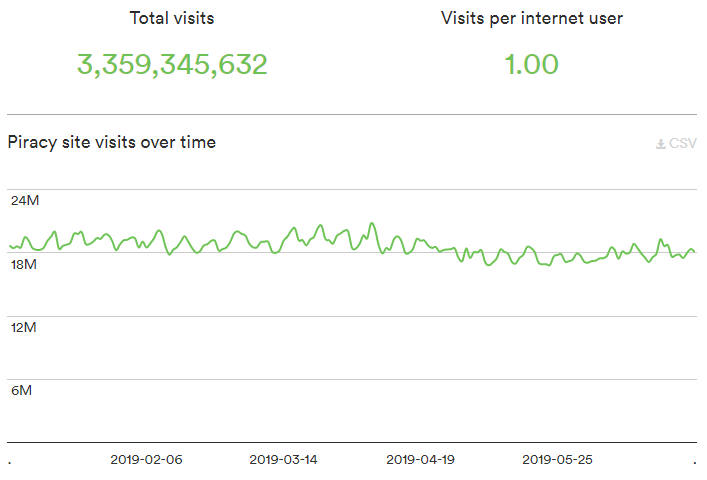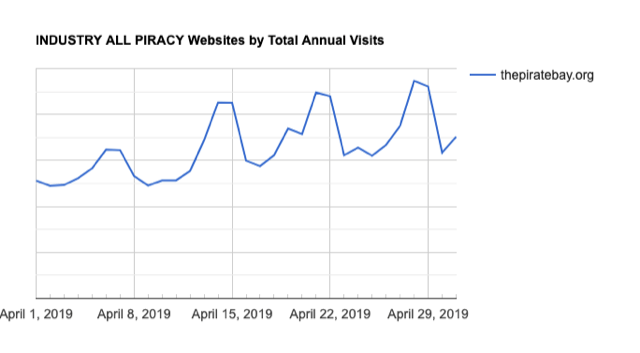
Blocking orders to prevent the distribution of copyright content are commonplace in several regions around the world.
In India, however, blocking injunctions are regularly handed down to protect specific movies, oftentimes before those movies are even released.
That is also the case with the movie ‘Nerkonda Paarvai’, a legal drama set to hit big screens worldwide today. In anticipation of this release, copyright holder Bayview LLP headed off to the Madras High Court, seeking a pre-emptive injunction to prevent the movie from being spread to the public for free via the Internet and other means.
The High Court hasn’t published the full details of the application, meaning that the list of sites set to be targeted hasn’t yet been revealed in public. It almost certainly contains one, if not many domains, operated by the notorious torrent site Tamilrockers, but the rest remain open to speculation.
What we do know is that a total of 39 Internet service providers were named as defendants in the order handed down this week by Justice Krishnan Ramasamy in the Madras High Court. The Judge acknowledges that the Bayview LLP production has been the subject of significant investment and is set to be released on more than 2,000 screens worldwide.
While it’s not uncommon to list ISPs as defendants in such cases, often noting that they play an unwitting role in the distribution of infringing content, the wording in the Judge’s order, which cites the plaintiff’s case, seems to go considerably further. Whether that’s entirely intentional is open to question.
“The learned counsel for applicant contended that the various cable and internet services provided by various persons (respondents 1–9) across the world are involved in activities of recording, cam-cording and reproducing the audio songs, audio-visual clips, audio-visual songs and full cinematographic films that are screened in theatres and then copying/reproducing them through various medium including but not limited to CDs, DVDs, VCDs, Blu-ray Discs, computer hard drives, pen drives etc.,and distribute the same for selling at a meager sum to the general public without any leave or authorization of the production houses/copyright holders/right holders such as the applicant herein,” the order reads.
Citing the above and referencing the application, the Judge said that in his opinion a prima facie case had been made for him to award a preliminary injunction which will continue until August 20, 2019.
The order, obtained by TorrentFreak, is available here (pdf). The full list of ISPs is detailed below.
1) BHARAT SANCHAR NIGAM LIMITED
2) Mahanagar Telephone Nigam Ltd.
3) Bharati Airtel Ltd.
4) Vodafone Idea Ltd. (Formerly Idea Cellular Ltd.)
5) Reliance Jio Infocomm Ltd.
6) Atria Convergence Technologies Pvt. Ltd.
7) Hathway Cable and Datacom Ltd.
8) Tata Docomo
9) Asianet Satellite Communications
10) Tikona Digital Networks Pvt. Ltd.
11) You Broadband And Cable India Ltd.
12) Reliance Communications Infrastructure Ltd.
13) Rail Tel Corporation of India Ltd.
14) Shyam Spectra Pvt. Ltd.
15) Sify Technologies Ltd.
16) AT And T Global Network Service India Pvt. Ltd.
17) Peak Air Pvt. Ltd.
18) Knet Solutions Pvt. Ltd. (Cherrinet)
19) Limras Eronet Broadband Services Pvt. Ltd.
20) SITI Networks Limited
21) Andhra Pradesh State Fibre Net Ltd.,
22) Raaj Internet (I) Pvt. Ltd.
23) Joister Infoserve Pvt. Ltd.
24) GTPL Hathway Ltd.
25) Ready Link Internet Service Ltd.
26) Nettlinx Limited
27) Excitel Broadband Pvt. Ltd.
28) Southern Online Bio Technologies Ltd.
29) Dawn Supports Pvt. Ltd.
30) Thalainagar Digital Cables (P) Ltd.
31) Cable Cast New Media Pvt. Ltd.
32) C32 Cable Net Pvt. Ltd.
33) Team 5 Network
34) SND Satellite Vision
35) Kerala Communicators Cable Ltd.
36) Asianet Digital Network Pvt. Ltd.
37) DEN Networks Ltd.
38) Starvision Cable TV Network
39) Telecom Regulatory Authority of India (TRAI)
Source: TF, for the latest info on copyright, file-sharing, torrent sites and more. We also have VPN reviews, discounts, offers and coupons.











 This week we have one newcomer in our chart.
This week we have one newcomer in our chart.